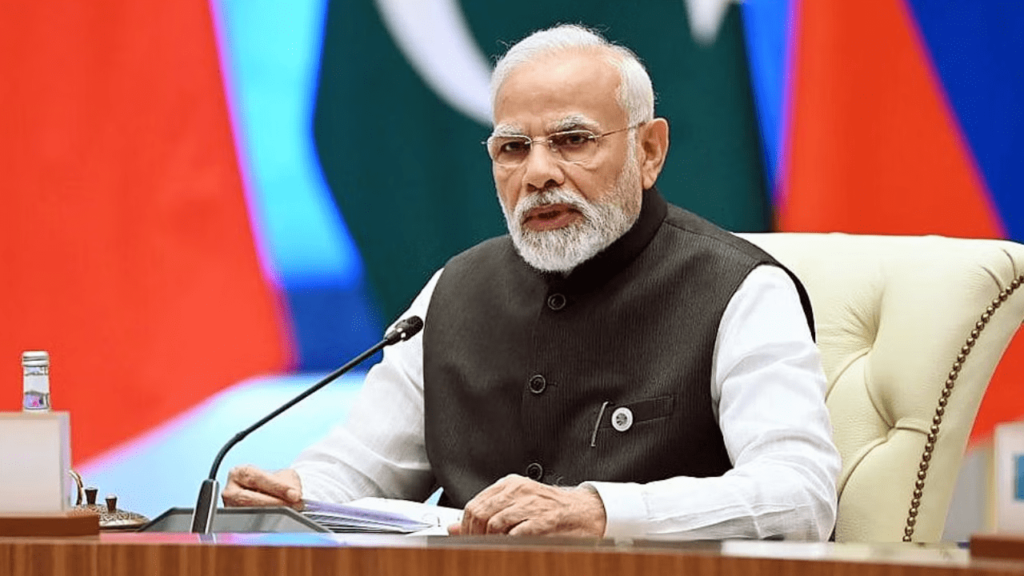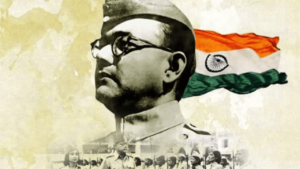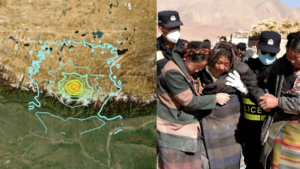Pakistan has invited Prime Minister Narendra Modi to the Shanghai Cooperation Organisation (SCO) Summit in Islamabad this October. With rising tensions between India and Pakistan, particularly over issues such as terrorism and Kashmir, India’s response to this invitation remains uncertain.

As the political temperature rises between India and Pakistan, Pakistan has extended an invitation to Indian Prime Minister Narendra Modi for the upcoming Shanghai Cooperation Organisation (SCO) Summit. Scheduled for October 15-16, 2024, in Islamabad, the Council of Heads of Government (CHG) meeting offers a platform for regional cooperation and dialogue among SCO members, which include China and Russia. But the invitation has put India in a vulnerable position. Recent diplomatic tensions between the two countries, compounded by security concerns in Jammu and Kashmir, make Modi’s attendance unlikely.
Even though historical hostilities and ongoing conflicts have tarnished bilateral relations, the Shanghai Cooperation Organization (SCO), founded in 2001, has frequently offered an uncommon platform for India and Pakistan to interact on a global basis.
Pakistan, which holds the rotating chairmanship of the CHG this year, extended the invite to Modi following protocol. Yet, despite this formality, the invitation raises significant questions. Will India risk further souring relations by declining to attend, or will a lower-level representative be sent in Modi’s stead?
Rising Tensions Amid SCO Diplomacy
The India-Pakistan relationship is particularly delicate during the time of the SCO Summit. The two nations have been at odds for years over several divisive topics, most notably Kashmir. The division has further widened following India’s move in August 2019 to repeal Article 370 of its constitution and revoke Jammu and Kashmir’s special status. As a result of Pakistan’s persistent criticism of India’s action as unlawful, tensions between the two nuclear-armed neighbors have escalated diplomatically.
Recent events have further complicated the situation. A series of terror attacks in the Indian-administered part of Kashmir, allegedly supported by groups based in Pakistan, has reignited old wounds. Indian Prime Minister Modi, in his speech on Kargil Vijay Diwas in July 2024, directly criticized Pakistan, accusing the country of fostering terrorism and engaging in proxy warfare to remain relevant on the global stage. These harsh words, while reflective of India’s longstanding grievances, have made any potential diplomatic thaw less likely.
Given this backdrop, Modi’s participation in the upcoming SCO Summit appears doubtful. Yet, India’s decision carries significant weight. By sending a representative, India would demonstrate its commitment to multilateral diplomacy despite its ongoing disputes with Pakistan. At the same time, attendance could be seen as condoning Pakistan’s actions, which India vehemently opposes.

India’s Strategic Calculations
India’s approach to the SCO has always been one of cautious engagement. While the organization is considered important for enhancing regional unity and security, India is wary of certain features of the SCO. The greater concern is the strong influence of China, which has positioned the SCO as a highly anti-Western forum.
India, which seeks to maintain balanced relations with both the West and its regional neighbors, is keen to avoid being drawn into the SCO’s orbit of influence in a way that might compromise its strategic autonomy.
A key point of divergence between India and other SCO members is the Belt and Road Initiative (BRI). China’s flagship infrastructure project has been endorsed by most SCO members, but India has consistently refused to sign on, citing concerns about sovereignty and the BRI’s potential to undermine regional stability. India’s refusal to support the BRI during SCO joint statements has underscored its determination to protect its interests, even if it means standing alone within the group.
The upcoming summit in Islamabad presents India with another diplomatic challenge. While Modi has often attended SCO heads of state summits, he skipped the most recent one in Kazakhstan due to a scheduling conflict with a parliamentary session.
Traditionally, India has sent a ministerial representative to the CHG meetings, with Foreign Minister S. Jaishankar attending the summit in Bishkek last year. It remains unclear whether India will opt for a similar approach this time around.
The Role of the SCO Charter
Despite the close ties, the SCO is one of the few forums where India and Pakistan can cooperate, especially because of SCO legal provisions. The Code prohibits member states from taking bilateral issues forums, effectively nullifying any chance of open confrontation between India and Pakistan in the SCO without the need for appeals. This arrangement allowed for joint exercises and diplomatic relations between the two countries, although bilateral relations remain cool.
For a meeting of the SCO foreign ministers, Pakistan’s former foreign minister, Bilawal Bhutto Zardari, traveled to India last year. While the visit did not mark any meaningful change in relations, it underscored the importance of the SCO as a platform for continued engagement even in the face of deep hostilities.
What Lies Ahead?
As the October summit approaches, the Indian government must weigh its options carefully. A decision to participate at any level will send a signal to both Pakistan and the international community about India’s approach to regional diplomacy. However, recent terror attacks in Jammu and Kashmir, as well as Modi’s firm stance against Pakistan’s actions, make a high-profile visit unlikely.
Even if the invitation from Pakistan was extended as a policy, it forced India to face the challenges of its relations with its neighbor. On one hand, attending the SCO Summit allows India to maintain its presence in a key regional forum. On the other, it raises the question of whether participation in Islamabad could be seen as tacit approval of Pakistan’s policies, which India finds objectionable.
As of now, the Government of India has not taken any decision on the invitation. It remains to be seen whether Modi will convince the minister as he has done in the past or whether he will take a different approach. One thing is clear, the SCO summit will test the diplomatic resolve of India and Pakistan, as they navigate the delicate balance of regional cooperation and sustainable competition.
As more details emerge about the summit and India’s potential role in it in the coming weeks, all eyes will be on New Delhi on how it chooses to engage with Islamabad in this high-stakes international game.
Read Next:

The Psychology of Love: Why Valentines Day Matters More Epic Than You Think
Discover the psychology of love and why Valentines Day is more important than you think. Learn how love impacts the brain, strengthens relationships, and boosts

Premier League Highlights: Arsenal Humiliate Man City 5-1, Spurs and Palace Secure Crucial Wins
Arsenal demolished Manchester City 5-1 in a statement premier league highlights win, reigniting their title hopes. Meanwhile, Crystal Palace stunned Man United 2-0, and Tottenham

How Budget 2025 Impacts the Indian Middle-Class: Major Tax Benefits and Glaring Omissions
Budget 2025 offers major tax relief to the middle class, including zero tax on incomes up to ₹12 lakh. However, it misses out on incentives

Degrees vs Employability: Why “Highly Qualified Degree Holders” Struggle to Find Jobs While “Less Qualified Individuals” Get Hired Faster!
Many highly qualified individuals struggle to secure jobs, while less qualified candidates get hired quickly. This Degrees vs Employability paradox is caused by employer preferences,

The Power of Mindset: Why Looking Poor Doesn’t Make You Poor, but Thinking Poor Does!
Discover why looking poor doesn’t define your wealth but thinking poor does. Learn the power of mindset and how a growth-oriented mindset can lead to

Overthinking: How It’s Damaging Today’s Youth – Causes and Cure in 2025
Understanding how overthinking is silently damaging today’s youth, from its causes rooted in societal pressure and social media to its long-term effects on mental health.

Netaji Subhash Chandra Bose: An Epitome of Epic Leadership
Discovering the incredible life of Netaji Subhash Chandra Bose, a leader whose vision, courage, and determination redefined India’s freedom struggle. Explore his leadership qualities, ideology,

Global News Headlines Today: From Gaza Ceasefire to Blue Origin’s Massive 2025 Milestone
Explore today’s top global news headlines, from the Gaza ceasefire and Blue Origin’s historic spaceflight to Apple losing its top spot in China’s smartphone market.

The Hidden Danger of Social Media Nudity: A Threat to Today’s Youth in 2025
Understanding how social media nudity is impacting the youth and their future potential. Learn about the risks of unregulated content, cultural sensitivities, and solutions for

FA Cup 2024: Manchester United Survive Arsenal Test to Advance in FA Cup Fourth Round
Manchester United defeated Arsenal in a thrilling FA Cup third-round encounter, with Atlay Bayindir’s heroics sealing the win. Read about key moments, standout performances, and

Supercopa de España: Barcelona Dominate Real Madrid 5-2 to Claim Supercup
Barcelona delivered a stunning 5-2 victory over Real Madrid in the Supercopa de España final. Read about the key moments, star players, and the significance

Global News Highlights Today: India’s Metro Milestone, US Aid Shift, iOS Stunning Updates and More!
Explore today’s global news highlights, including the Tibet earthquake, political tensions in South Korea, LA wildfires, US aid shifts, and India’s metro milestone. Stay informed

The Power of Keeping Plans Private in 2025: Why Silence is the Key to Achieving Your Dreams!
Discover why keeping plans private is crucial for achieving your dreams. Learn how silence boosts focus, protects momentum, and helps you achieve success without distractions

Rolls-Royce Ghost Series II Arrives in India 2025: Elegance Meets Stunning Innovation
Discover the all-new Rolls-Royce Ghost Series II launched in India, priced from ₹8.95 crore. Explore its stunning design, luxurious interior, enhanced tech features, and powerful
